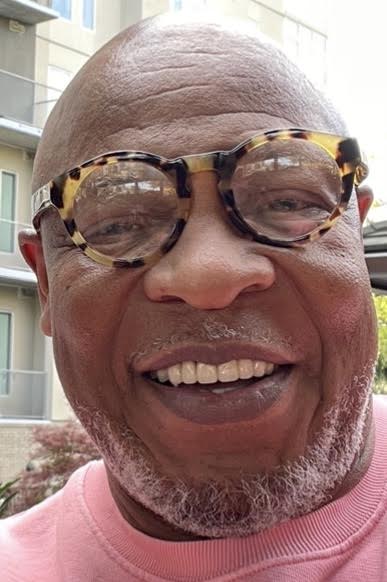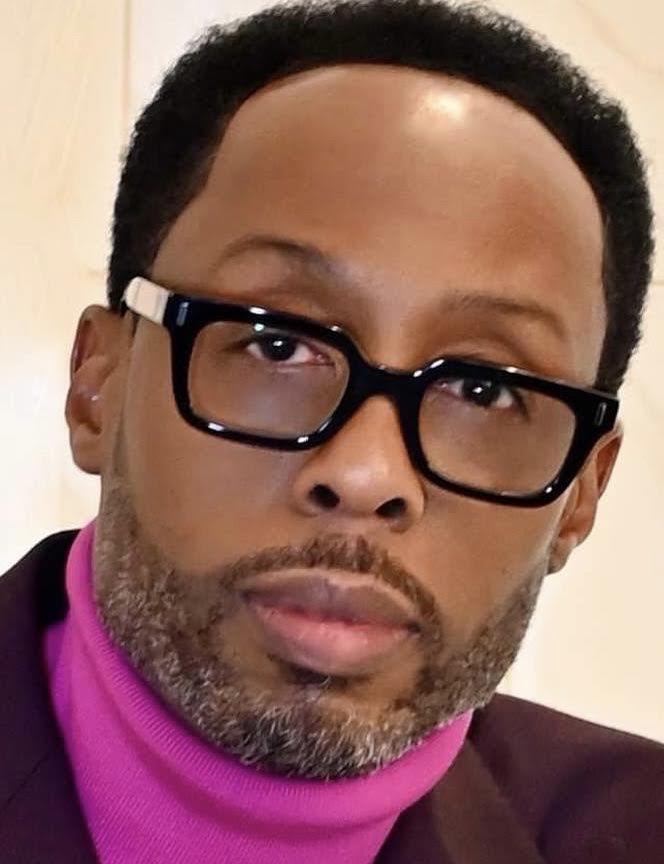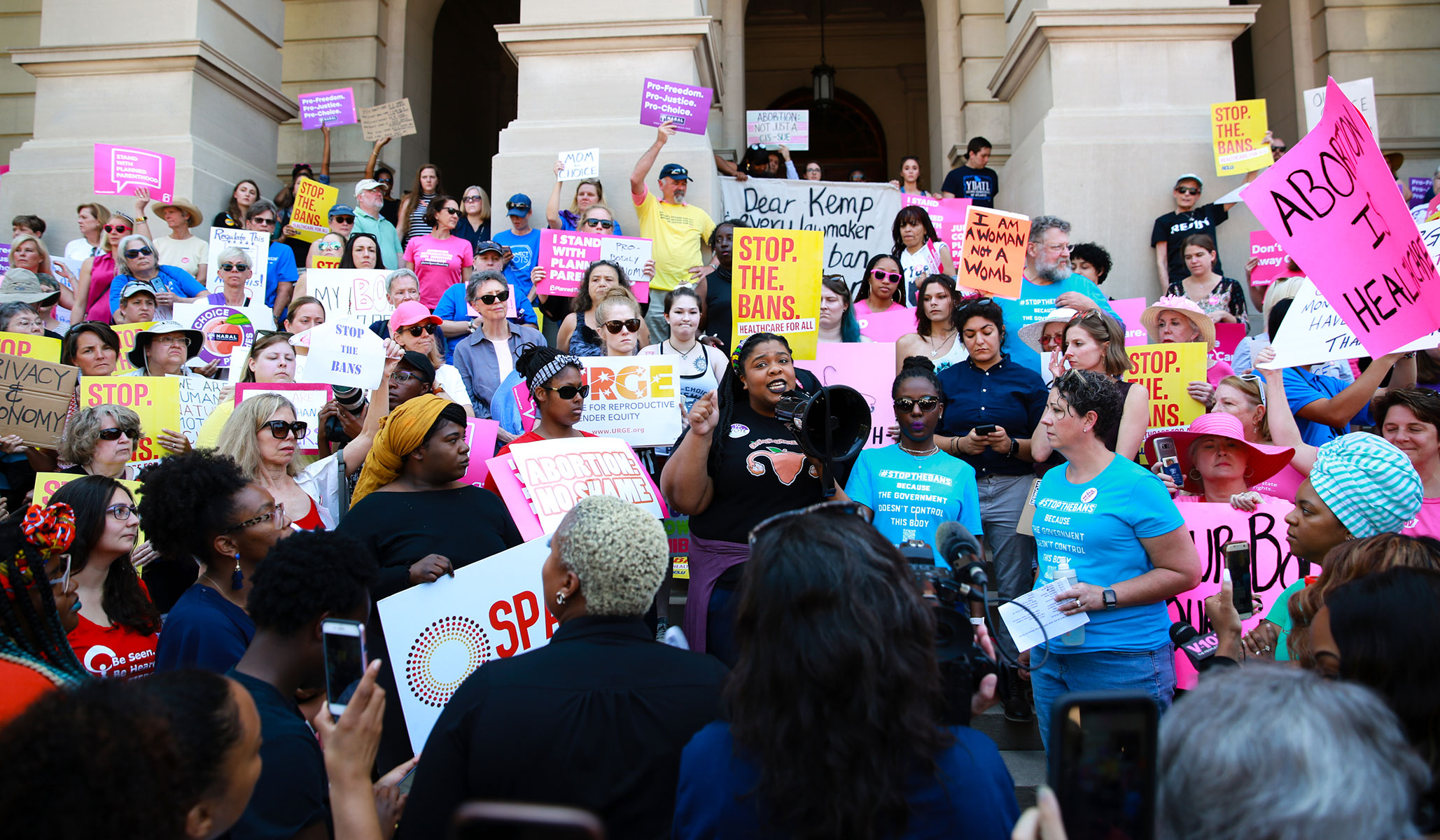Breaking: Herschel Walker Is Right, Abortion Takes Heaviest Toll on Black Georgia Communities
For two months this fall, Flynn Johnson used his Sunday sermons to explore the role of the church in modern culture, and to emphasize the need for Christians to carry Heaven's agenda in the world. Near the end of the eight-week series, he turned to the topic of abortion.
Johnson, the bishop at Metro City Church, a midsize black church in Atlanta, said he called for parishioners burdened by the sin of abortion to come forward for prayer. He was shocked, he said, when dozens of members — many of them men — rose from the pews.
"I didn't think it would be that many," Johnson said of the scene. "Honestly, it broke me up."
Johnson, a fierce abortion opponent, believes that human life, born and unborn, is sacred, and that killing the unborn for convenience is a sin. He's saddened by how common the practice has become in Atlanta, and about the toll it's taken on the city's black community.
According to Georgia health-department data, there were 34,988 abortions performed in the state last year, and 22,815 of them, or about 65 percent, were performed on black women. In Fulton County, which includes Atlanta, the numbers are even more striking: Of the 6,808 abortions performed in the county last year, 74 percent were performed on black women, who constitute 45 percent of all women in the county. Last year, there were nearly as many black abortions in Fulton County (5,037) as there were black births (5,507), according to state data.

"Who have we put in the ground? What potential leadership have we put in the ground? What potential creativity have we put in the ground?" Johnson asked. "The loss is incalculable."
Abortion has been a leading political issue nationwide in the wake of the Supreme Court's June ruling in Dobbs. Democratic strategists have been counting on a backlash to the ruling and to alleged Republican extremism on the issue to buoy their candidates in November.
The issue has been particularly relevant in Georgia, which now bars most abortions after fetal cardiac activity is detected. Last week, when asked on MSNBC about her policy prescriptions for inflation, Stacey Abrams, the Democratic nominee for governor, pointed solely to abortion and to the financial costs of having children, because "having children is why you're worried about your price for gas, it's why you're concerned about how much food costs."
Abortion has also featured prominently in the Senate race between Herschel Walker, a pro-life Republican and former football star accused of paying for a former girlfriend's abortion, and incumbent Democrat Raphael Warnock, a self-described pro-choice pastor. During a mid-October debate, Walker questioned Warnock about his position. "He told me black lives matter. And if you think about it, senator, in Atlanta, Georgia, there's more black babies that are aborted than anything," said Walker, asking, "Why are you not baptizing those babies?"
The data back up Walker's point. Despite its reputation as a highly religious and Christian state, Georgia has one of the country's highest abortion rates. The Guttmacher Institute, a pro-abortion research group, found that Georgia had the seventh-highest abortion rate of any state in 2020 — 18.9 abortions per 1,000 women ages 15 to 44. Most of those abortions, especially in the Atlanta area, are performed on black women.
In that regard, Georgia is not unique. According to data from the U.S. Centers for Disease Control and Prevention, in the 29 states (plus Washington, D.C.) that reported racial and ethnic data on abortion in 2019, 38 percent of all abortions were performed on non-Hispanic black women, higher than non-Hispanic whites (33 percent) and Hispanics (21 percent). According to that CDC data, most abortions were performed on black women in five states (Mississippi, Georgia, Alabama, Michigan, and Tennessee), whereas black women had the highest number of abortions, but not a majority, in five other states (North Carolina, Arkansas, Virginia, New Jersey, and Florida). Several prominent blue states, including California, Illinois, New York, Oregon, and Washington did not report racial and ethnic data to the CDC.
Dr. James Sherley, a Johns Hopkins-trained stem-cell biologist and an associate scholar at the pro-life Charlotte Lozier Institute, has studied the rate of abortion in the black community. Sherley, who is black, calls it "just mind-boggling." For decades, black children in the U.S. have not had an equal opportunity to survive until birth, he wrote in a 2020 paper.
"Every year in America, what do black people die of? If you add up all the other causes of their death, abortion is greater than that number," Sherley told National Review.
"What Herschel Walker said about Georgia in general is true about America," he added. "I think a lot of people don't appreciate this, and many black people don't realize this: Abortion is a scourge on black life in America."
Johnson, the Metro City bishop, said Warnock's spin on abortion as "reproductive justice" is ridiculous. "If you understand the biblical worldview, and you understand the creator and creation," he said, "then you cannot in good faith treat that life as nothing." Johnson was one of 28 pastors and religious leaders who signed a 2020 letter urging Warnock, the senior pastor at the historic Ebenezer Baptist Church in Atlanta, to reconsider his stance on abortion. He hasn't.
Johnson and other black Atlanta pastors and Evangelists who spoke with National Review described the toll that abortion has taken on their members and on the community generally.
On the personal level, abortion often leaves mental scars – scars of guilt and regret – on the women who get them, and on the men who support and sometimes pay for them, said B. Dwayne Hardin, bishop at the Embassy ATL, a nondenominational church in the city. He said abortion has affected such a large swath of the black community in Atlanta, including his own family, that "it's almost hard to talk about it because you almost put people in a state of shame."
Johnson said he believes the fatherlessness common in the black community and the high black abortion rate feed off each other – women too often turn to abortion because they don't trust the father to stick around, and men push for abortion because its relatively inexpensive and it absolves them from the responsibility of being a father.
And, of course, there is the toll that abortion has taken on the size of the black population, diminishing its power, prospects, and dynamism. "Abortion adversely impacts the population growth of the African-American community. I can't go past that. That's just the real, obvious truth," said Alveda King, a pro-life Christian Evangelist and niece of Martin Luther King Jr. "You cannot grow a community by killing the babies of the community."

Hardin believes that abortion has robbed Atlanta's black community of future leaders, political power, and economic strength. He does not believe, as the New York Times recently suggested, that limiting abortions in the black community will spur poverty and crime.
"A strong black America is a stronger America, period," Hardin said.
But mainstream media reporting typically presents abortion access as a positive, particularly for members of minority communities. In May, before the Supreme Court's Dobbs decision, an Associated Press headline declared that, "with abortion in jeopardy, minority women have the most to lose." A Texas Tribune headline the next month warned that "Black women will largely bear the brunt of abortion limits."
The reports note that black women tend to have more health complications and are more likely to die during childbirth than women from other racial and ethnic groups, they tend to receive lower quality care and often lack access to prenatal care, and are less likely than women in other groups to have health insurance.
"Abortion restrictions are racist," Cathy Torres, an organizing manager with the pro-abortion Frontera Fund, told the AP. "They directly impact people of color, Black, brown, indigenous people . . . people who are trying to make ends meet."
Sherley said he is horrified by mainstream media reporting that regularly suggests abortion is good for black women and for the black community, calling that line of reasoning disingenuous, and "such a cheap shot" against a group that has suffered through a long history of discrimination. In his 2020 paper, Sherley noted the ample media attention paid to black maternal mortality, writing that "maternal mortality, in stark contrast to the high incidence of abortion, is an extraordinarily rare event."
"They basically say the solution to higher maternal mortality rates among black women is to abort their babies. It doesn't make any sense at all," he told National Review. "The solution to higher maternal mortality for black women is to give them better prenatal and post-natal care. There is no other solution to it but that."
Sherley believes the high abortion rate in black communities nationwide is another manifestation of the legacy of anti-black racism in the U.S., along with poor housing conditions, and high crime and incarceration rates. "Abortion is another reflection of racism," he said.
King said she believes the high black abortion rate stems from the efforts of Margaret Sanger, the founder of Planned Parenthood and a white eugenicist who sought to prevent the "unfit" and the "feeble-minded" from reproducing. "That's the basis of all of it," King said. "It's still here, and it goes on from generation to generation."
Planned Parenthood has denounced Sanger's belief in eugenics and has acknowledged "the harm that Sanger caused to generations of people with disabilities and Black, Latino, Asian-American, and Indigenous people." But the organization has continued to highlight Sanger's supposed outreach to the black community. It has also vowed to confront any white supremacy in its ranks, and to fight the dehumanization of minorities.
Sherley is not sold that Planned Parenthood has overcome its past. "Planned Parenthood preys on black communities," he said.
He believes Planned Parenthood and other pro-abortion groups are often the primary sources of education on the issue in many black communities, which could help explain why black voters largely oppose abortion restrictions and support pro-choice candidates. In early October, for example, the University of Georgia released a poll that asked about the state's new heartbeat law. The poll found that 86.4 percent of black voters strongly opposed the law, and 76.3 percent responded that they were more likely to back candidates who want to protect abortion access.
Sherley said education is the key to reducing support for abortion, but it will take time. "The fundamental thing is, we have to find a way to de-conflate women's rights and freedoms equals abortion rights. Somehow we have to find a way for women and pre-born children to both be valued," he added. "Right now we're in a political moment and a social moment where those two have been put at odds with one another."
Hardin said that when he talks to church members who are dealing with an unplanned or unwanted pregnancy, he tries to offer help. "My goal is not to just talk them out of it, but also provide a solution for it," he said. That could be offering options — adoption, assistance from a church member, helping them find work — along with counseling and financial literacy training. He hopes to start a program that trains women to be midwives. He said he also makes a point of meeting with young women in his church and helping them learn to value themselves.
"At that same time, if something happens, we're not going to look down on you," he said. "We're going to become that tribe that jumps in and takes care of the baby."
| |
| THIS BREAKING NEWS ITEM IS PRESENTED BY  |
| |
|













No comments: